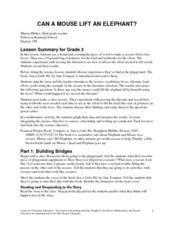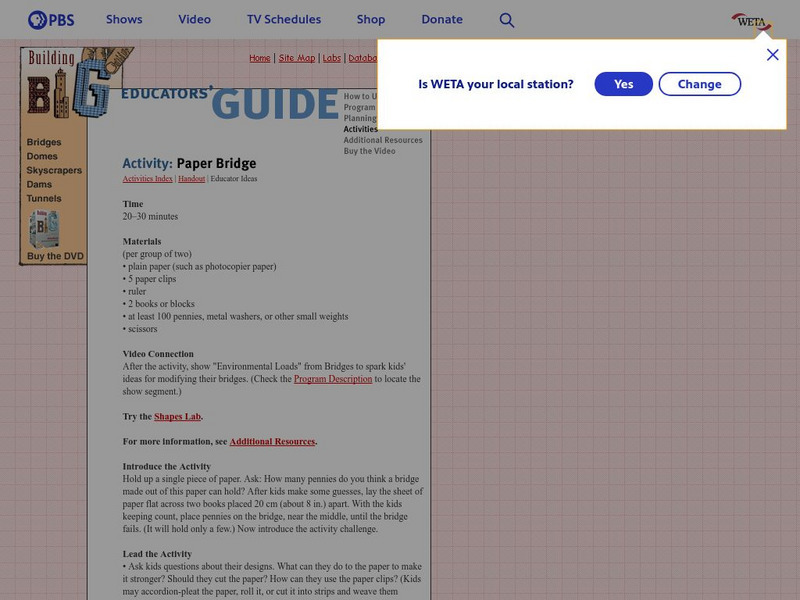Teach Engineering
Stop the Stretching
Stretch your teaching repertoire with an experiment on the elongation (stretching) and failure (break) of several materials. The point of the experiment is to design a composite material for chair webbing.
Curated OER
Can a Mouse Lift an Elephant?
Read Just a Little Bit, by Ann Tompert as an introduction to levers. Discuss playground seesaws and then turn learners loose to experiment with the placement of a fulcrum. Their goal is to determine where to place it in order to lift ten...
Institute of Electrical and Electronics Engineers
Critical Load
Students analyze critical load and how to reinforce the design of a structure to hold more weight. They examine basic structures and which materials to select. They create a prototype to hold more and more weight.
Curated OER
The Squeeze is On
Students investigate the force of compression and how it acts on structural components through a hands-on group project. They use everyday products such as paper, toothpicks, and tape to construct a structure that will support the...
TeachEngineering
Teach Engineering: Load It Up!
Students take a hands-on look at the design of bridge piers (columns). First they brainstorm types of loads that might affect a Colorado bridge. Then they determine the maximum possible load for that scenario, and calculate the...
PBS
Pbs Learning Media: Columns: Finding the Strongest Shape
In this video segment, members of the ZOOM cast experiment by bending and folding sheets of paper into various shapes to see which shape will support the weight of a heavy book. [3:33]
Other
The Motley Fool: Mutual Funds and Fund Loads
Scroll down the page to find an explanation of the different types of mutual fund loads, and why buying a no-load fund is just as good as buying a load fund. A good financial resource.
PBS
Pbs Building Big: The Labs
An interactive series of labs describing some basic principles of Physics. The labs demonstrate different basic concepts of physics used in building and creating large structures such as bridges, domes, skyscrapers, dams, and tunnels.
Science Buddies
Science Buddies: Bridge Building Bonanza: Which Design Wins?
In this activity, you build and test two types of bridges: a simple suspension bridge and a beam bridge. Which bridge design is stronger?
PBS
Pbs Teachers:paper Bridge
Investigate the forces acting on a support and make adjustments to give a bridge the strength to support its own weight (the dead load) as well as the weight of anything placed on it (the live load).









